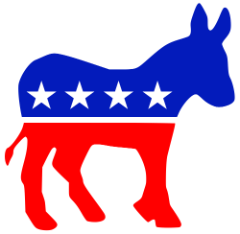By Sean Perryman:
Following the election of Donald Trump, the Democratic Party at both the local and national level continues to grapple with race and the role it should or shouldn’t play in its platform and organizing.
In that vein, on September 12th, the Fairfax County Democratic Committee (FCDC) will hold a Racial Equity Workshop for its membership. The workshop is designed to give members a greater understanding of structural racism and its impact on day-to-day interactions.
Essential to any understanding of race is an examination of racism. The construct of race after all was conceived to justify maltreatment of people of color. But it does not end there.
So, what is racism?
With Nazis, Klansman, and white supremacists running for office, taking center stage in our media, and organizing marches on the nation’s capital in a sequel to their violent gathering in Charlottesville, it’s easy to point and say “that’s racism.”
This overly simplistic definition of racism absolves us of deeper self-reflection because “at least, we’re not them,” but it fails to capture the insidious and pervasive nature of systemic racism. To point to examples of explicit racism as the only form of racism make us accountable for only our intentions and not the consequences of our actions or inactions. This simplified understanding that racism is explicit, intentional, and stems from ignorance, however, fits within the popular conception of the term.
Let me offer a more thoughtful definition: In his award-winning book, “Stamped from the Beginning: The Definitive History of Racist Ideas in America,” scholar Ibram X. Kendi flips that ahistorical definition on its head. “[S]elf-serving efforts by powerful factions to define their racist rhetoric as nonracist has left Americans thoroughly divided over, and ignorant of, what racist ideas truly are,” he writes.
Instead, Kendi posits that racism is better understood this way:
“Racial discrimination -> racist ideas -> ignorance/hate”
That is, we discriminate based on self-interest, we create racist ideas to justify that discrimination, and people internalize those racist ideas. In this understanding of racism, it is critical that we tackle how we all have internalized racist ideas, even people from traditionally marginalized communities.
If we want to be serious about being anti-racist, we cannot pat ourselves on the back for merely not ascribing to the ideology or not adopting the language of the lowest among us. We should strive for better in both policy and practice.
Can we say we have done that?
From The Blue View
